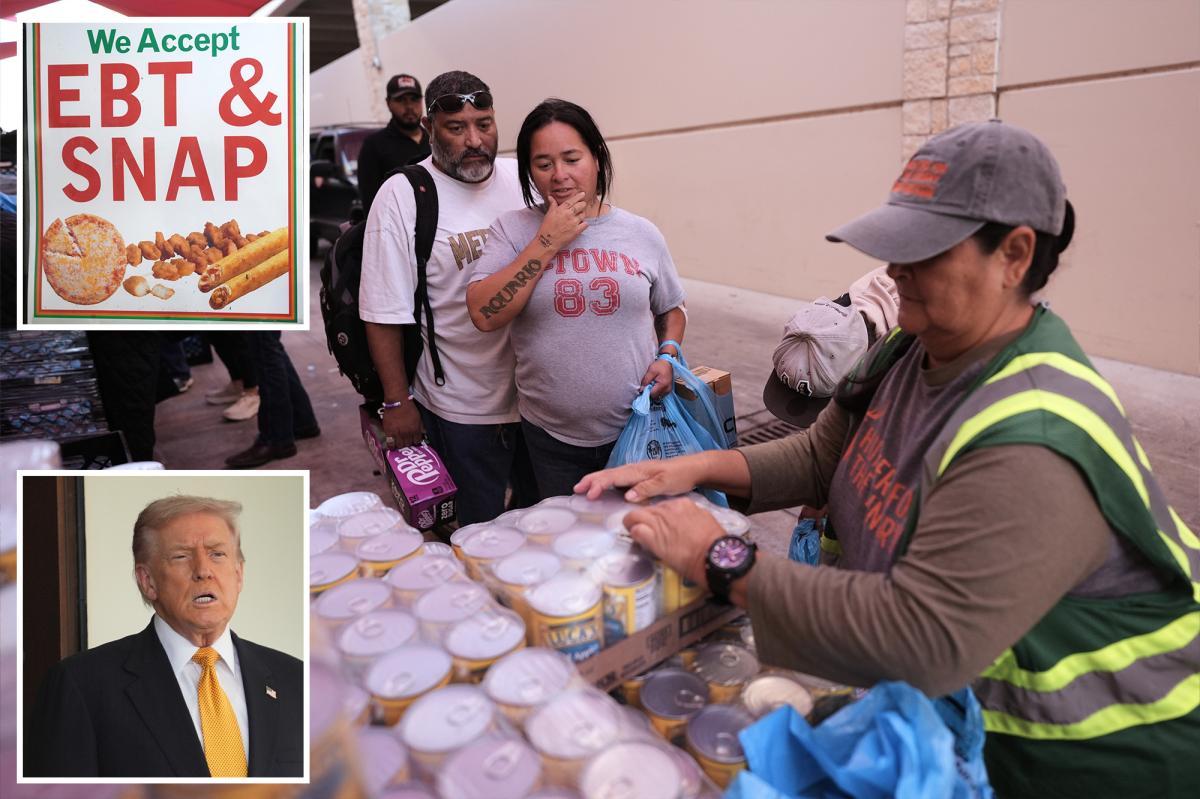The Supreme Court on Friday allowed President Trump’s administration to temporarily withhold roughly $4 billion needed to fully fund food aid for 42 million low-income Americans, escalating a showdown over hunger relief during the historic government shutdown.
Justice Ketanji Brown Jackson issued an administrative stay pausing a lower-court order that required full November payments under the Supplemental Nutrition Assistance Program, or SNAP.
The stay will remain in effect until two days after the Boston-based 1st US Circuit Court of Appeals rules on the administration’s formal request to limit payments.
Residents across the nation started to receive their full SNAP food aid benefits on Friday after an appeals court left in place, for now, a requirement that the Trump administration fund such benefits during the government shutdown. AP
US District Judge John McConnell in Rhode Island had ordered the government on Thursday to use all available funds — including a separate $23.35 billion child-nutrition account supported by tariffs — to cover the full $8.5 to $9 billion cost of November SNAP benefits.
McConnell, an appointee of former President Barack Obama, accused the administration of withholding aid for “political reasons.”
The Justice Department warned the Supreme Court that McConnell’s order would “sow further shutdown chaos” by prompting “a run on the bank by way of judicial fiat.”
Solicitor General D. John Sauer argued the ruling forced the administration to spend money not appropriated by Congress and could deplete reserves for other nutrition programs.
“This unprecedented injunction makes a mockery of the separation of powers,” Sauer wrote in an emergency filing.
The administration said it had already allocated $4.65 billion in emergency funds to cover part of the month’s costs, but not the full amount. The 1st Circuit denied an initial request to stay McConnell’s order but has yet to rule on the broader appeal.
1 in 8 Americans are currently enrolled in SNAP. Christopher Sadowski
The USDA complicated matters Friday when it notified states that funds would be available to pay full SNAP benefits — even as the administration filed papers seeking to block the very order that made that money accessible.
Officials in New York, New Jersey and Massachusetts moved quickly to issue full payments, saying they could not risk another delay.
Wisconsin, Oregon, Hawaii, and Pennsylvania also confirmed they had released full benefits by Friday evening, while other states — including Colorado, North Carolina, and Illinois — said they would follow over the weekend.
Officials reported that more than a half-dozen states confirmed that SNAP recipients have received their monthly payments this week. AP
Delaware began using state funds to provide emergency payments.
Sauer told the Supreme Court that several states moved quickly to “seize what they could of the agency’s finite set of remaining funds” before an appeal could be filed.
Start your day with all you need to know
Morning Report delivers the latest news, videos, photos and more.
Thanks for signing up!
The political and legal whiplash has left millions of SNAP recipients, roughly 1 in 8 Americans, unsure when — or whether — they will receive food aid.
SNAP benefits, which lapsed at the start of November for the first time in the program’s 60-year history, provide up to $298 per month for one-person households and $546 for two-person households, depending on income.
With Post wires.

